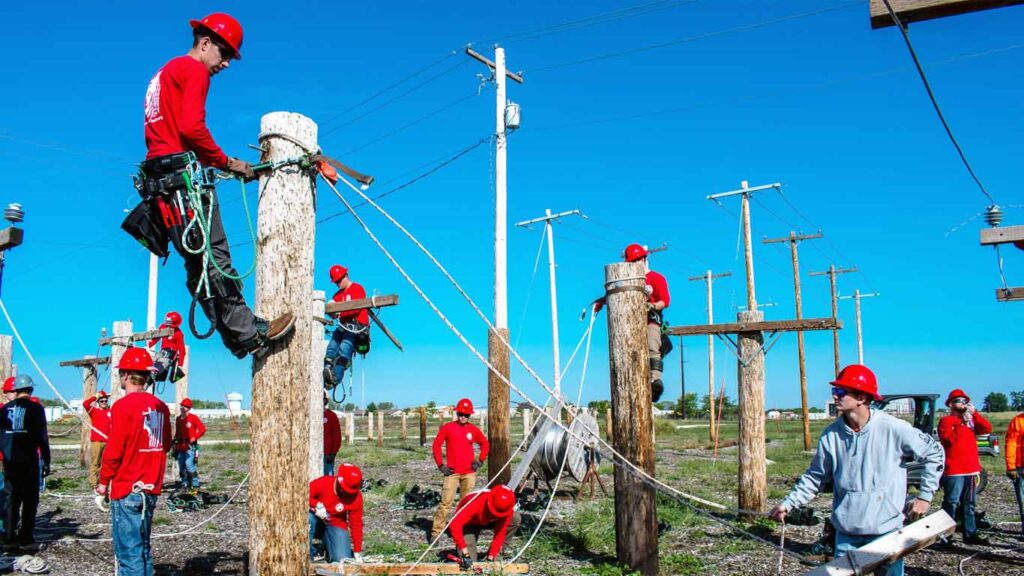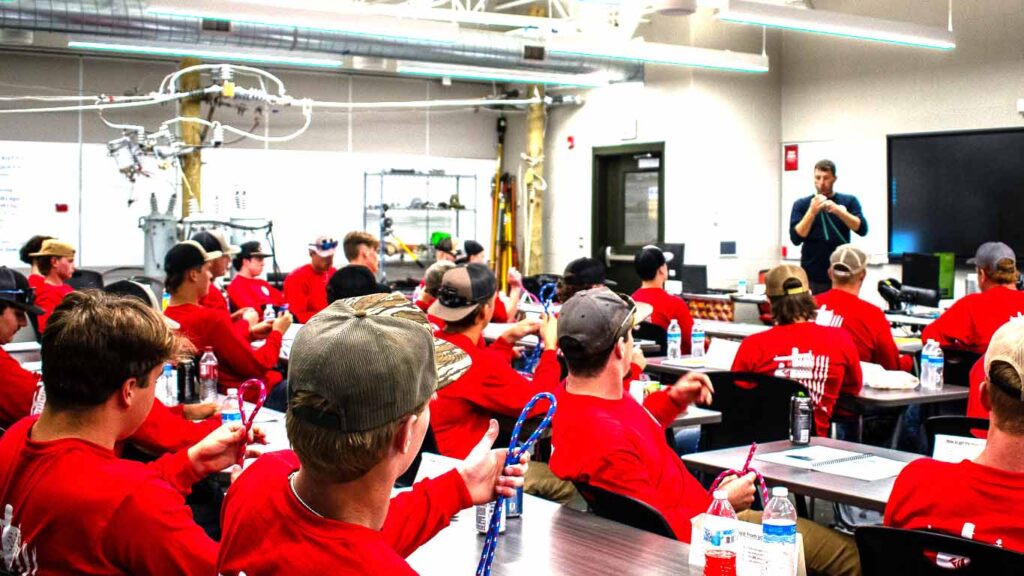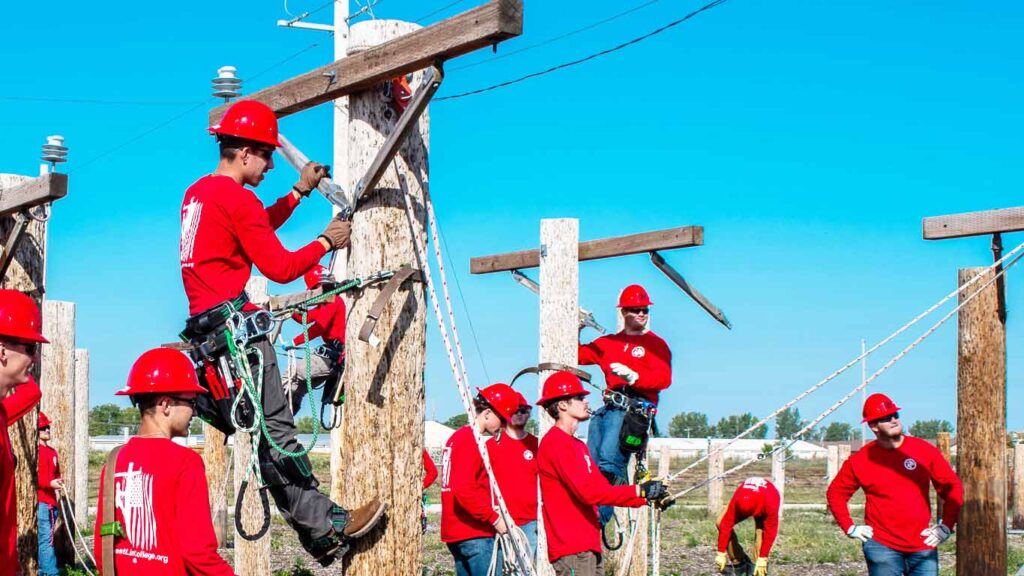When you think about a career in the energy industry, linemen usually come to mind. However, for those who like surviving, this profession is a very struggling job. You can say that these are the real heroes of this world. If a city has no electricity, that city becomes completely paralyzed. But the people who work tirelessly to keep your city illuminated and fill your life with happiness are the linemen. Becoming a lineman is not that easy! To become a lineman, one has to go through tough training.
Today, we will learn about the lineman training program, which is very important for those who love this profession and want to take it as a career.
Who are Linemen?
Have you ever seen a candle? When a candle burns, it stays in the dark itself but keeps everything around it bright. You can say a lineman’s job is quite similar. In bookish terms, a lineman is a trained professional who works with electrical systems, installs, maintains, and repairs power lines. Their job is extremely risky because they work with high-voltage systems, often on utility poles or towers, which are very dangerous. However, their work is extremely important because they are responsible for supplying electricity to a city or village.
Why are Lineman Training Programs Important?
Can an ordinary person ever play with a poisonous snake? Of course not. To play with a snake, one must be a skilled, trained snake charmer. Otherwise, death is certain. A lineman is just like that — always dealing with dangerous electricity, so training is very important. Working with electricity without proper training means certain death. So, to become a lineman, special training is required. Working with electrical systems, working at heights, and working in hazardous environments all require specific skills. Lineman training programs help students gain the knowledge and skills necessary to handle these challenges safely and professionally. These programs are specially designed to prepare students with both theoretical education and real-world experience.

Main Components of Lineman Training Program
1. Classroom Education
The first step of a lineman training program is classroom education, where students learn about electrical theory, the functioning of power grids, and other basic concepts. The knowledge gained in the classroom helps them in real-life work. They also learn about electrical codes and safety regulations, which help them work safely and efficiently.
2. Hands-on Training
The most important part of a lineman’s training program is hands-on training. Students engage in activities like climbing utility poles, operating heavy machinery, and repairing and installing power lines. In this way, they learn in a real working environment and enhance their skills. Special emphasis is given to safety management, such as the use of ropes, harnesses, and other protective gear.
3. Safety Protocols
Safety is of utmost importance. When working with high voltage, taking proper safety measures is extremely necessary. Students are taught how to use safety equipment, identify electrical hazards, and respond to emergency situations.
4. Apprenticeship Training
After completing basic training, students usually enter into apprenticeship training. This gives them the opportunity to work in a real environment under the supervision of experienced linemen. Apprenticeship training can take about 3 to 4 years and is an essential part of the training.
5. Certification and Licensing
After completing apprenticeship training, students generally need to pass a certification or licensing exam. This proves their professional competence and is a necessary step for working in utility companies. In some regions, linemen are required to continue their education regularly to keep their certification up to date.
Types of Lineman Training Programs
There are various ways to obtain lineman training, depending on your location, career goals, and preferred learning environment. Some common training options are:
1. Community Colleges and Technical Schools
Many community colleges and technical schools offer lineman training programs. These programs generally take 1 to 2 years to complete and award an associate degree or certificate. This builds a strong foundation that helps students start their careers as linemen.
2. Union Training Programs
Unions, such as the International Brotherhood of Electrical Workers (IBEW), offer formal apprenticeship training programs. These programs combine classroom education with real job experience, and upon successful completion, they often lead to full-time job opportunities in utility companies.
3. Utility Company Training Programs
Some utility companies run their own training programs or collaborate with educational institutions. These programs are specialized based on the specific needs of the company.
Where Do Linemen Train?
Lineman training can take place in various locations, depending on the type and location of the program. Some training occurs in classrooms, such as at community colleges or technical schools. Other training happens in the field, such as on mock utility poles or in simulated work environments, where students can work in real-life situations.
Some programs are even conducted in collaboration with utility companies, where students can work directly under the supervision of experienced linemen.

Career Outlook and Salary
The demand for linemen will increase in the future as energy infrastructure expands and modernizes. With the use of renewable energy and the improvement of power grids, linemen will play a vital role.
In terms of salary, a lineman in the United States earns an average of about $75,000 per year. However, this may vary depending on experience, location, and specific employer. Most utility companies also offer health insurance, pension benefits, and other bonuses.
Best Lineman Training Center
Southeast Lineman Training Center:
One of the largest lineman training schools in the U.S., offering 15-week Electrical Lineworker and 8-week Communications Lineworker programs. SLTC trains nearly 1,100 students annually and provides hands-on experience in a realistic environment.
North American Lineman Training Center :
Offers a 15-week program focusing on safety, electrical systems, climbing, and career preparation. Instructors are experienced journeymen linemen, providing personalized, hands-on training. More about NALTC
Northwest Lineman College:
Provides 15-week programs in Idaho, California, Texas, and Florida, covering electrical lineworker, telecom, and gas programs. NLC emphasizes safety and hands-on experience.
American Lineman College:
Offers 10-16 week programs with weekend classes to accommodate working students. ALC provides climbing certification, CDL training, and a Certified Utility Worker program.
Midwest Line College:
The college offers a comprehensive 13-week intensive training program, combining both classroom instruction and hands-on fieldwork. Students spend over 480 hours learning essential electrical principles and practicing real-world linework skills. The program covers a wide range of topics, including electrical systems, transformers, rigging, grounding, and transmission and distribution systems. Alongside technical knowledge, students are also trained in safety procedures such as pole-top and vault rescue, as well as OSHA 10 Electrical Transmission & Distribution (ET&D) certification, which ensures they meet national safety standards. Learn more MLC
Conclusion
Lineman training programs provide a path to building a strong and rewarding career. With proper training and experience, you can successfully build a career in the energy industry. If you want to become a lineman, choose the program that fits your goals and career plans, and prepare yourself for a strong and safe career.
⚡ Ready to Power the Future?
If you dream of becoming one of the real heroes who keep the world’s lights on, start your lineman journey today!
👉 Explore lineman training programs near you, get the right education, and prepare to climb high—both literally and in your career.
Remember, every great city shines because of a lineman like you. So take the first step now—enroll in a lineman training program and be the power behind the light!

